Editor’s Note: Fifty years ago this week, Carole King’s album Tapestry was released, becoming the most-beloved and Grammy-winning album of 1971 and the top-selling album of the decade. Tapestry revealed a more inclusive form of female beauty, unified a violence-broken country, and showed that a woman could rise to power in the male-dominated world of rock. As one of the three most significant feminist and musical events of 1971 (the other two are the doings of Joni Mitchell and Carly Simon), NextTribe is looking at Carole’s abiding significance by re-posting this article by NextTribe writer Sheila Weller, as we will re-post her pieces—on Joni and her interview with Carly—in the coming weeks. Sheila’s New York Times bestselling 2008 book Girls Like Us: Carole King, Joni Mitchell, Carly Simon and the Journey of a Generation uniquely tells the stories of all three of these women and the magical years that the—and many of us, whether kids or teens or young women—inhabited.
***
Carole King now is so vibrant at age 76, she’s not only actively campaigning for Democratic candidates and the environment (which she has done for decades), she’s also writing a novel. Plus, she is an activist and—importantly—a unifier.
In these days of a painfully, dangerously divided America, she understands what red state and blue state people have in common more than most singer-songwriters. Yes, a few Nashville-based country stars like Jason Isbell have dared to cross the line (asserting “blue” values with a “red” fan base), but Carole did it differently—and admirably. When she says, as she did recently, in extensive comments to David Browne of Rolling Stone, that she knows, in a positive way, a lot of Trump voters, she has decades of experience behind it.
Carole King Now: Finding Common Ground
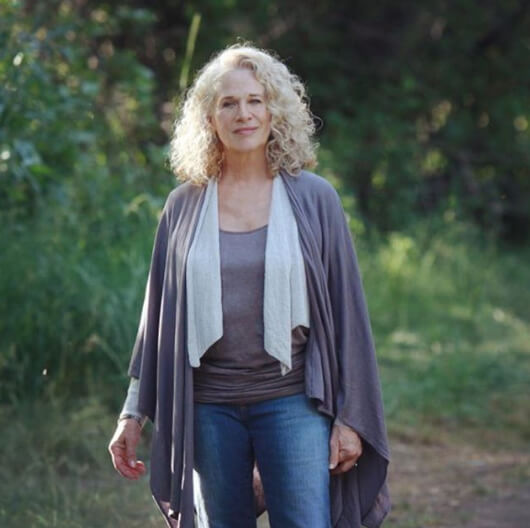
Image: Carole King/Instagram
Among their commonalities are “education, health care; they want the best possible opportunities for their children,” she said. “They’re on their side of the political divide and I’m on mine, but [our emphasis added] we have so much in common, like caring for our neighbors.” Carole has just re-recorded her lovely, idealistic 1977 song “One” to include a determined last line “We are one.” She had two of her three daughters, Sherry Kondor and Louise Goffin, sing that line with her, “and I still tear up when I get to that part,” she says.
When she originally wrote the song for her album Simple Things, it was her “pure expression of my unfiltered belief that each of us has the power to change the world,” she said in her memoir A Natural Woman. The new version is even more stirring—and much more necessary.
Carole knows about helping to create unity: She has done it before. Her 1971 masterpiece, the Grammy-awards-sweeping Tapestry, helped heal young America culturally after the violent and bloody anti-Vietnam War protests and the assassinations of Robert Kennedy and Martin Luther King, as well the wildness of psychedelia. It—and she, so likeably natural in looks and manner—presented a new template for simpler, nonabrasive living, and in her song, “You’ve Got a Friend,” a more sincere and neighborly but still hip spirit.
Read More: Carly Simon and Sally Taylor on Creativity, Love—and No Secrets
Carole’s Deep-Country Days
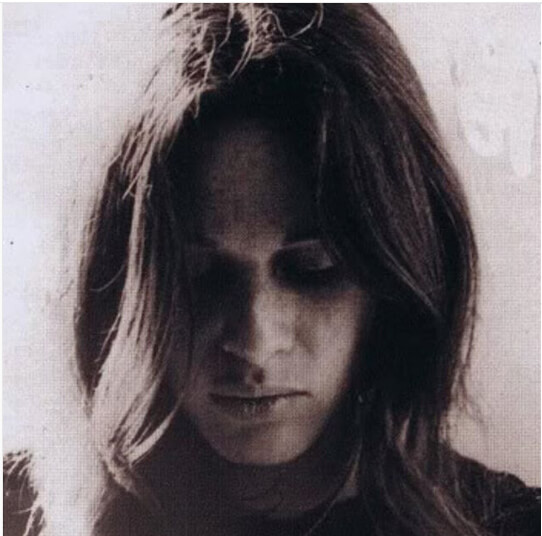
From the Carole King Family Archives, 1970; via Carole King/Instagram
In 1977, Carole moved into lovely, deep, inland Idaho: not “blue” Sun Valley but “red” Custer County. This was a change of world. Carol was raised in the creatively and intellectually robust world of largely Jewish Brooklyn in the 1950s. Then she re-located—as a young, divorced pop songwriter and mother of two (she’d had her first child as a teenager)—to Laurel Canyon, the hotbed of young folk-rock eminences in the very late ‘60s and earliest ‘70s.
There, becoming freer, she was a hugely admired earth mother to the slightly younger music folks who hadn’t shared her more conventional and responsibility-filled prior life. She created Tapestry with the flowering of her own new confidence and the new sensibility that was glinting in the air but which she helped fortify. I was gratified to tell this, and much of Carole’s story, in my book Girls Like Us.
In deep Idaho, life was radically different from Brooklyn and Laurel Canyon. She milked cows and goats; she home-schooled the two youngest of her four children in a simple cabin in the woods in many feet of snow; she skied on the frozen river to get necessities. That’s a lot of change for a girl from Brooklyn!
She named her first house there the Welcome Home Ranch and bonded with the local neighbors, whose childhoods and ethnicities (and parents’ political leanings) were different than her own. There were, serially, two husbands in her life, during that span of a dozen or so years that ended in the early ‘90s, both of them named Rick.
Her first Rick was an Idaho man, charming but with a rough-hewn past he hadn’t quite overcome. Her second Rick was a very tall, rugged mountain man who lived a life of rustic self-sufficiency. She embraced that life as well—more cow-milking among neighbors who did the same—while simultaneously becoming a fervent activist for the Northern Rockies Ecosystem Protection Act. It is to her great credit that she adventured past predictable matings and lifestyles. She dared to fruitfully live a portion of her life in a manner so very different from the neighborhoods and values of her childhood and her high-fame years, the “glamour” of which she resolutely rejected. Most people stay in a comfortable box; Carole didn’t.
Read More: Joni Mitchell: 3 Reasons She Matters So Much to Us
Unity Over Enmity
That larger life has given her perspective that few of us have. She told David Browne about the neighborliness of her largely “red” neighborhood: “When a guy got burned out of his trailer, people came together. I came and sang, and people who had only $2 in their pocket gave him $1. I now live in a bluer community” but only “because the epic snows of 2017 made the roads [where I lived] collapse. I couldn’t stay there, but I keep the people of Custer County in my heart, always.”
Carole told Browne that “one thing I want to encourage with this song is that people find comity between them, find what they have in common and talk to each other with respect and listen to each other.”
Comity between red and blue neighborhoods has never been more impossible-sounding—or more absolutely necessary.
Thank you, Carole King, for this new version of your song. And for a wide-viewed, open-minded life lived on values we somehow have to rekindle if we are going to continue as one nation.
A version of this article was originally published in 2018.
***
Sheila Weller is the author of seven books (three of them New York Times Bestsellers), the best of which is Girls Like Us: Carole King, Joni Mitchell, Carly Simon—and the Journey of a Generation, which Billboard magazine recently named #19 of the best music books of all time. She has been writer of major features for Vanity Fair, a recent longtime senior contributing editor at Glamour, a has written for the New York Times Opinion, Styles and Book Review and for just about every women’s magazine in existence. She has won 10 major magazine awards.

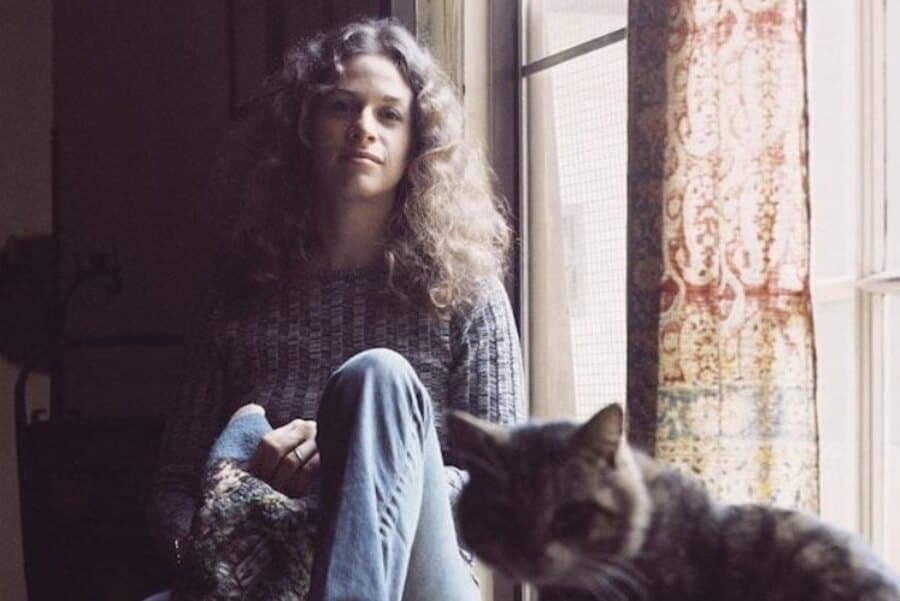


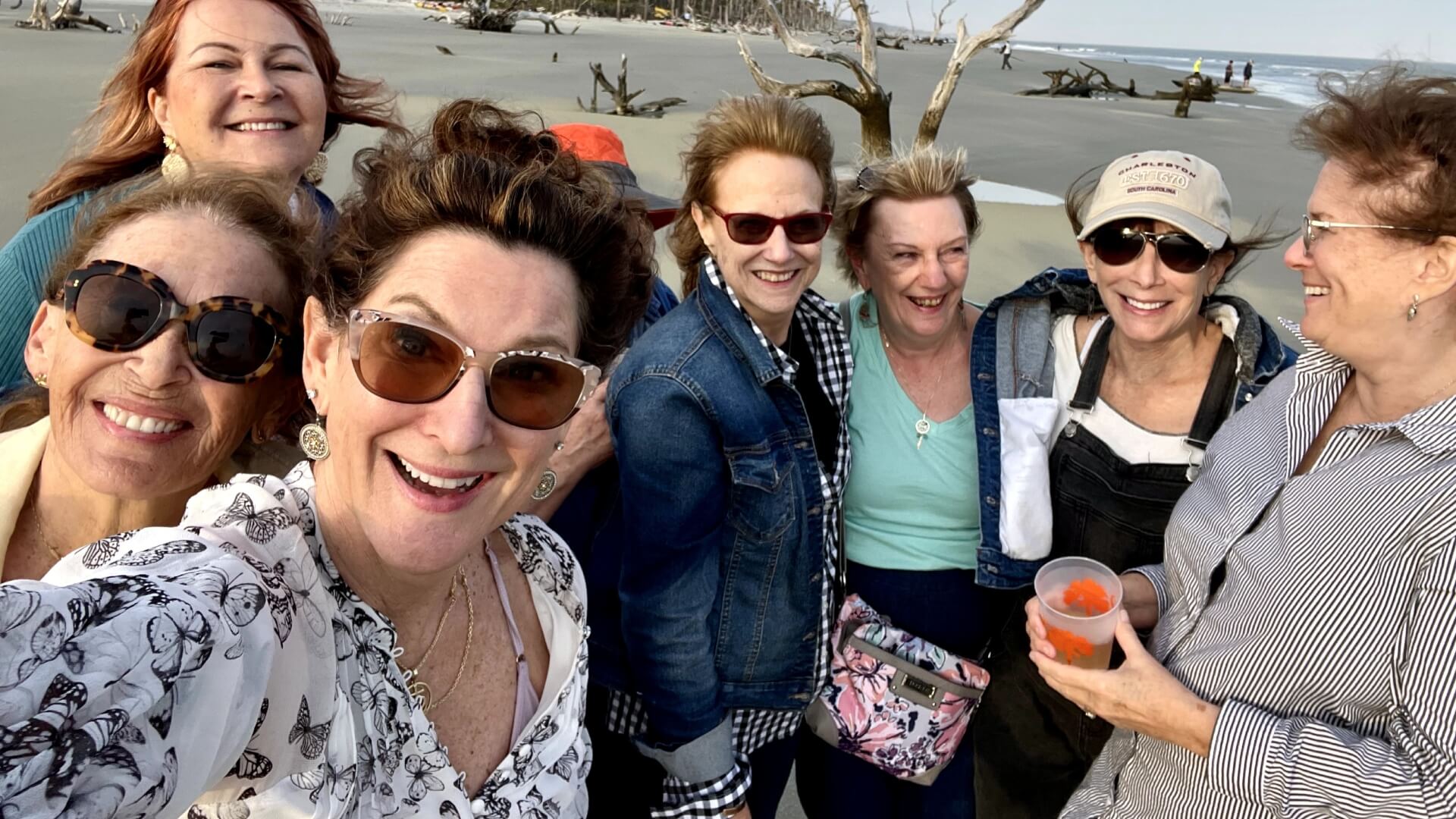

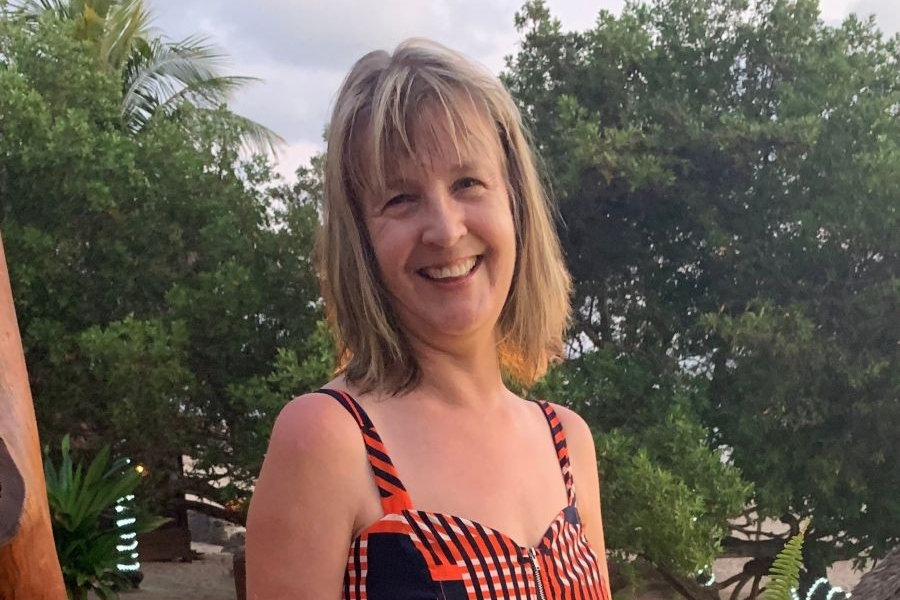





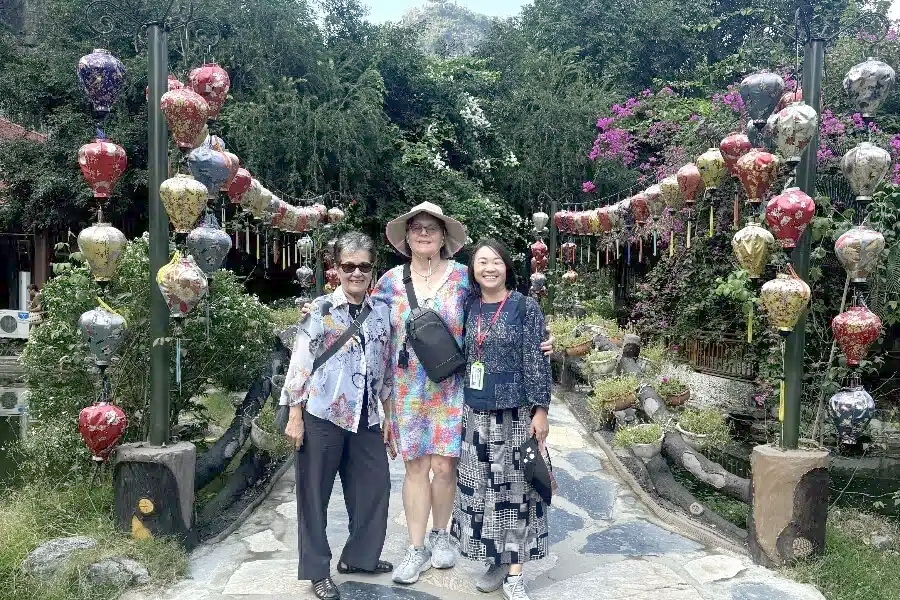


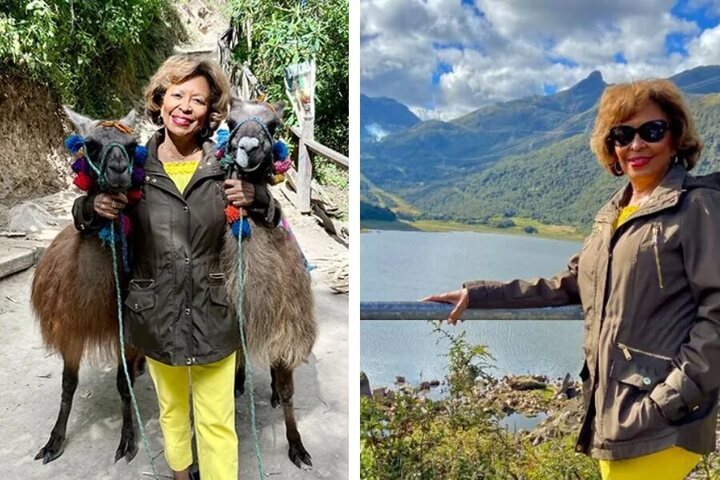





0 Comments